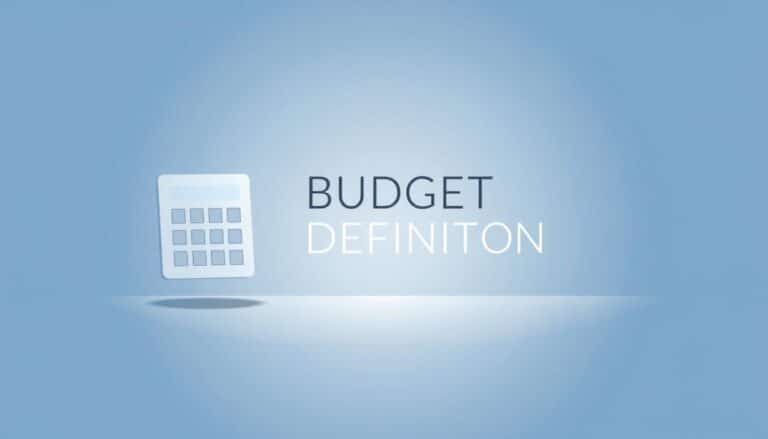Knowing how to manage money is a key skill for a better life. Financial stability is a dream for many. But, it takes knowledge and good habits to get there. In today’s world, knowing about money is more vital than ever.
Financial literacy lets people make smart money choices. It helps them understand different financial options. It’s not just about saving or investing. It’s about knowing how money works fully.
Key Takeaways
- Financial literacy is crucial for making informed financial decisions.
- It helps individuals achieve financial stability and security.
- Understanding financial concepts can improve one’s quality of life.
- Financial literacy is essential for navigating today’s complex financial landscape.
- It empowers individuals to make smart choices about their money.
Definition of Financial Literacy
Related content:
You will stay on the same website.
Financial literacy is more than just knowing about money. It’s about using that knowledge to make smart choices that improve your financial health.
Understanding Basic Financial Concepts
Basic financial concepts include managing your money, saving, and investing. Financial literacy starts with knowing how to read financial statements and understand interest rates. It also means knowing the difference between needs and wants.
For example, knowing about compound interest can greatly help in saving and investing. It’s a key principle for making smart financial decisions.
Importance of Budgeting
Budgeting is key to financial literacy. It means tracking your income and expenses to stay within your budget. A good budget helps you focus on what’s important, reach your financial goals, and avoid debt.
Good budgeting also means knowing the difference between fixed and variable expenses. Fixed expenses, like rent, stay the same every month. Variable expenses, like entertainment, can change.
| Expense Type | Description | Example |
|---|---|---|
| Fixed Expenses | Expenses that remain the same each month | Rent, Mortgage |
| Variable Expenses | Expenses that can change from month to month | Dining out, Entertainment |
The Role of Saving
Saving is crucial for financial literacy. It means setting aside money for the future or emergencies. Emergency funds are essential for unexpected costs or job loss.
Saving is vital for long-term goals like retirement or buying a home. It requires discipline and a clear financial plan.
The Benefits of Financial Literacy
Financial literacy brings many benefits that can greatly improve your financial health. It helps you understand money basics. This leads to better money decisions and a more stable future.
Enhanced Decision-Making Skills
Financial literacy boosts your decision-making skills. It lets you evaluate financial products wisely. This is key in today’s world, where there are many financial choices.
Increased Financial Security
It also means more financial security. Knowing how to budget and manage debt makes your finances stable. This stability reduces financial stress and gives you peace of mind.
Better Investment Strategies
Lastly, it helps you make better investment choices. Understanding investing risks and rewards is crucial. This knowledge can lead to more successful investments and higher returns.
In summary, financial literacy offers many benefits. It improves decision-making, increases security, and helps with investments. These advantages can lead to a more secure financial future.
Key Components of Financial Literacy
Knowing the key parts of financial literacy is key to smart money choices. It covers a wide range of skills and knowledge. These help people manage their money well.
Budgeting and Expense Tracking
Budgeting is a basic part of financial literacy. It’s about planning how to spend your income. Good budgeting helps you focus on what’s important, avoid debt, and reach your money goals.
Tracking expenses is linked to budgeting. It means watching where your money goes. This helps you find ways to save and spend better.
Key steps in budgeting and expense tracking include:
- Identifying income sources
- Listing monthly expenses
- Analyzing spending patterns
- Adjusting budgets as needed
Saving and Emergency Funds
Saving is a key part of financial literacy. It’s about setting aside money for the future or emergencies. Having savings can make you feel secure and less stressed.
An emergency fund is for unexpected costs, like car repairs or medical bills. Experts say you should have three to six months’ worth of expenses saved up.
“The lack of savings is a significant predictor of financial stress.” – Financial Expert
| Savings Goals | Recommended Amount |
|---|---|
| Emergency Fund | 3-6 months’ expenses |
| Short-term Savings | 1-3 years’ expenses |
| Long-term Savings | Retirement or long-term goals |
Understanding Debt Management
Managing debt is a big part of financial literacy. It’s about knowing different debts and how to handle them. This includes credit card debt, student loans, and mortgages.
Good debt management helps you avoid financial problems. It means paying off debt, talking to creditors, and not taking on more debt.
Strategies for managing debt include:
- Prioritizing high-interest debt
- Consolidating debt when beneficial
- Making timely payments
- Avoiding new debt
The Importance of Budgeting
Budgeting is key to managing your money well. It lets you decide how to spend, reach financial goals, and stay out of debt. Knowing where your money goes and making smart choices is part of budgeting.
Setting Financial Goals
Starting with financial goals is the first step in budgeting. You might aim to save for a house, pay off debt, or build an emergency fund. Clear goals guide your spending, making sure you spend on what matters most.
- Short-term goals might include saving for a vacation or paying off credit card debt.
- Long-term goals could involve saving for retirement or a down payment on a house.
Monitoring Spending Habits
Keeping an eye on your spending is key to staying on budget. It means tracking every expense, big or small, to see where your money goes. Using budgeting apps or spreadsheets makes this easier, giving you a clear view of your spending.
| Category | Monthly Budget | Actual Spending |
|---|---|---|
| Groceries | $500 | $550 |
| Entertainment | $200 | $250 |
Adjusting Budgets Over Time
Changing your budget as your finances change is important. Whether it’s a new income, expenses, or goals, your budget should be flexible. Regularly reviewing your budget keeps it in line with your current situation and goals.
By following these steps and using financial literacy resources, you can make a budget that helps manage your money and leads to financial stability in the long run.
How to Create a Budget
Creating a budget is key to financial literacy. It helps you see where your money comes from and where it goes. This way, you can make smart choices about your money.
Identify Income Sources
The first step is to list all your income sources. This includes your salary, side jobs, investments, and more. It’s important to know how much money you get each month. Here are some income sources to consider:
- Primary salary or wages
- Side jobs or freelance work
- Investment income (dividends, interest)
- Any other regular income
List Monthly Expenses
Next, list all your monthly expenses. This includes fixed costs like rent or mortgage, utilities, and groceries. It also includes variable costs like entertainment and hobbies. Grouping your expenses helps you see where your money goes. Here are some common categories:
- Housing (rent/mortgage, utilities)
- Food and groceries
- Transportation (car payment, insurance, gas)
- Entertainment (dining out, movies, hobbies)
- Debt repayment (credit cards, loans)
Analyze Spending Patterns
After listing your income and expenses, analyze your spending. Compare your income to your expenses to avoid overspending. Finding ways to save can help you reach your financial goals. Here are some tips:
- Track your spending to find patterns
- Use budgeting apps or spreadsheets to help
- Adjust your budget as needed to stay on track
By following these steps, you can make a budget that helps you financially. Understanding financial literacy is crucial for smart money decisions.
Saving Strategies for Financial Literacy
Learning to save is key to financial literacy. It helps people manage their money well. By saving in a smart way, you can get ready for emergencies and big goals.
Importance of an Emergency Fund
An emergency fund is vital for financial health. It acts as a safety net for sudden costs like medical bills or car repairs. Aim to save three to six months’ living expenses in a savings account you can easily reach.
An emergency fund keeps you out of debt and stress when unexpected bills come up. It also gives you peace of mind, knowing you can cover your basic needs.
Methods of Saving Effectively
Effective saving needs discipline and a good plan. Here are some ways to save well:
- Automate savings by setting up direct deposit into a savings account
- Follow the 50/30/20 rule: 50% for needs, 30% for wants, and 20% for saving and debt
- Reduce unnecessary spending and waste
- Use high-yield savings accounts to earn more interest
Using these methods, you can grow your savings over time. This boosts your financial knowledge and stability.
Setting Short-term and Long-term Goals
Having clear financial goals is crucial for saving. Short-term goals might be for a vacation, a house down payment, or paying off debt. Long-term goals could be for retirement, kids’ education, or financial freedom.
By setting SMART goals, you create a plan for your savings. This keeps you focused and motivated on your financial journey.
Understanding Credit Scores
Learning about credit scores is key to being financially smart. Credit scores show how reliable you are with money. They affect your ability to get loans and credit at good rates.
Components of a Credit Score
Credit scores are based on several things. These include how you pay bills, how much credit you use, how long you’ve had credit, the types of credit you have, and new credit checks. Knowing these parts helps you see where you can get better.
| Factor | Weightage | Description |
|---|---|---|
| Payment History | 35% | Record of on-time payments |
| Credit Utilization | 30% | Ratio of used credit to available credit |
| Length of Credit History | 15% | Duration for which credit has been active |
| Credit Mix | 10% | Variety of credit types (loans, credit cards, etc.) |
| New Credit Inquiries | 10% | Number of recent credit inquiries |
Improving Credit Scores
To better your credit score, you need a plan. Pay bills on time, use less than 30% of your credit, and don’t apply for too many credits at once. As
“A good credit score is a key to financial freedom.”
, checking and managing your credit reports is important.
- Make on-time payments
- Keep credit utilization below 30%
- Avoid applying for too much credit at once
The Impact of Credit Scores on Financial Options
Credit scores really matter for your financial choices. A high score means better loans, lower interest, and more credit. But a low score can make it hard to get credit and cost more to borrow.

By understanding and managing your credit score, you can improve your financial health. This is a big part of improving financial knowledge and using financial literacy programs wisely.
Basics of Investing
Understanding investing is key to a secure financial future. It’s a vital part of financial literacy skills. Knowing the different investments, their risks, and rewards is crucial.
Types of Investments to Consider
There are many investment options, like stocks, bonds, mutual funds, and real estate. Each has its own benefits and risks. Stocks can offer high returns but are riskier. Bonds are safer but may not earn as much.
| Investment Type | Risk Level | Potential Return |
|---|---|---|
| Stocks | High | High |
| Bonds | Low | Low-Moderate |
| Mutual Funds | Varies | Varies |
| Real Estate | Moderate-High | Moderate-High |
Risk vs. Reward in Investing
The risk and reward in investing are closely linked. Investments with higher returns often have more risk. It’s important to know this balance to make smart choices.
Risk management is key. It involves spreading out investments and rebalancing the portfolio to reduce losses.
The Power of Compound Interest
Compound interest is a powerful tool in investing. It makes investments grow faster over time. The sooner you start, the more it helps.
For example, $1,000 at a 5% interest rate grows to $1,050 in a year. In the next year, it grows to $1,102.50. This shows how compound interest can greatly increase your returns.
Financial Literacy and Education
Financial education is key to understanding money matters. It helps people make smart choices about their money. This leads to better financial health and security.
Resources for Learning Financial Literacy
There are many ways to learn about money. Online courses, tools, and websites offer tips on budgeting and saving. Books and podcasts also share valuable advice on managing money.
For adults, special programs can help a lot. They teach about debt, credit, and retirement planning. Community centers and non-profits also host workshops and seminars.
Schools and Financial Curriculum
Teaching money skills in schools is important. It helps kids learn about saving and investing early. This knowledge helps them make smart money choices later in life.
| Financial Literacy Topic | Age Group | Key Concepts |
|---|---|---|
| Basic Money Management | Elementary School | Saving, Spending, Basic Budgeting |
| Introduction to Investing | High School | Risk vs. Reward, Compound Interest |
| Advanced Financial Planning | College/Adult | Retirement Planning, Tax Strategies |
Community Workshops and Seminars
Workshops and seminars in the community are very helpful. They offer practical advice and examples. Topics include budgeting, credit, and investing.
Using these resources can greatly improve your financial knowledge. This leads to better financial health and a secure future.
The Role of Financial Advisors
Financial advisors offer expert advice that can greatly improve your financial health. They help you make smart choices that fit your financial goals. This advice is crucial for your financial well-being.
Benefits of Professional Guidance
Getting advice from a financial advisor has many benefits. They have the knowledge to explain complex financial products and strategies. This boosts your financial literacy.
With their help, you can create a financial plan that meets your specific needs. They also offer guidance on investment strategies. This ensures your investments balance risk and reward.
They are also key in planning for big life events. This includes retirement or buying a home. Their expertise is invaluable in these situations.
When to Seek Help from Advisors
It’s important to know when to seek a financial advisor’s help. You should consider their advice when dealing with complex financial decisions. This includes planning for retirement or managing large amounts of money.
Also, if you’re new to investing or unsure about managing your finances, an advisor can help. They provide clarity and help set realistic financial goals.
Finding a Qualified Financial Advisor
Finding the right financial advisor requires careful thought. Look for advisors who are certified and have a good reputation. Checking for CFP (Certified Financial Planner) credentials is a good start.
Also, consider their experience and expertise to match your financial needs. Referrals from trusted sources can help find a qualified advisor.
Financial Literacy Across Age Groups
Financial literacy is important at all ages. It helps with financial health at every stage of life. As people grow, their money needs change, so learning about money is key.
Teaching Children About Money
Teaching kids about money early is vital. Parents can start with simple lessons on saving, spending, and money’s value. Allowance programs help kids learn to budget and make choices.
For example, a weekly allowance can be split into saving, spending, and giving. This teaches kids to prioritize needs over wants.
Financial Knowledge for Young Adults
Young adults face more financial challenges. They deal with loans, credit cards, and other financial tools. Financial literacy programs for them cover debt, credit, and saving for the future.
Understanding credit scores is crucial for young adults. It affects their ability to get loans or credit later.
Planning for Retirement
Financial literacy is also key for those nearing retirement. They must assess their readiness, considering pensions, savings, and healthcare costs. Retirement planning workshops help with income and expense management.
| Age Group | Financial Focus | Key Skills |
|---|---|---|
| Children | Saving, Spending | Budgeting, Decision-making |
| Young Adults | Managing Debt, Building Credit | Understanding Credit Scores, Saving |
| Pre-Retirees | Retirement Planning, Expense Management | Maximizing Retirement Income, Healthcare Planning |
Improving financial knowledge at all ages is crucial. Tailored financial literacy programs help individuals manage their finances better.
The Importance of Financial Literacy in Relationships
Financial literacy is key in relationships. It affects both financial stability and trust. When both partners know and agree on financial goals, they can work better together.
Discussing Finances with a Partner
Talking openly about money is vital in any relationship. Couples should often discuss their financial situation, goals, and worries. This builds trust and helps in making smart financial choices together.
Key aspects to discuss include:
- Income and expenses
- Debt and savings
- Financial goals, both short-term and long-term
Impact on Marital Harmony
Financial literacy can greatly improve marital harmony by lowering financial stress. When couples agree on money matters, they face less conflict over it. A study shows that money issues are a top reason for divorce.
“Money issues are the third leading cause of divorce in the United States, with couples citing financial stress as a major contributor to their marital problems.”
Shared Goals and Budgets
Setting shared financial goals and a joint budget can make a relationship stronger. It promotes teamwork and cooperation, leading to financial stability. Using financial literacy resources helps in planning finances effectively.
It’s crucial for couples to develop financial literacy skills. This knowledge is needed for making smart choices about investments, savings, and managing debt. Workshops, online courses, or financial advisors can be very helpful.
| Benefits of Financial Literacy in Relationships | Description |
|---|---|
| Improved Communication | Regular discussions about finances foster trust and understanding. |
| Reduced Financial Stress | Aligning on financial goals reduces stress and conflict. |
| Enhanced Teamwork | Working together towards financial goals strengthens the relationship. |
In conclusion, financial literacy is essential for a healthy relationship. By mastering financial literacy, couples can improve their financial health, reduce stress, and grow closer together.
Common Financial Pitfalls
Learning about personal finance is key for adults. It helps avoid costly mistakes. Knowing how to budget, save, and manage debt is crucial for financial stability.
Many financial pitfalls can harm your goals. These include buying on impulse, not understanding fees and interest rates, and poor debt management.
Avoiding Impulse Purchases
Impulse buying can hurt your finances. To avoid it, you should:
- Create a budget and stick to it
- Implement a 30-day waiting period before making non-essential purchases
- Practice mindful spending by considering the necessity of each purchase
Understanding Fees and Interest Rates
Fees and interest rates can greatly affect your finances. To avoid these pitfalls, you should:
- Carefully review the terms and conditions of financial products
- Understand how interest rates are calculated and applied
- Compare rates and fees across different financial institutions
Managing Debt Effectively
Managing debt well is vital for financial stability. Strategies include:
- Creating a debt repayment plan
- Prioritizing high-interest debt
- Consolidating debt into lower-interest loans or credit cards
By understanding and avoiding these common pitfalls, you can boost your financial literacy. This leads to long-term financial stability.
Real-World Applications of Financial Literacy
Financial literacy is key in real life. It’s not just about knowing financial terms. It’s about using that knowledge to achieve financial stability and success.
Case Studies and Success Stories
Many case studies show the good effects of financial literacy. For example, a study by the Financial Industry Regulatory Authority (FINRA) found that those who know more about finance make better choices. They save more and invest wisely.
A young couple is a great example. They learned about finance at a workshop. They made a budget, paid off debt, and started saving for their kids’ education. Their new knowledge helped them make smart money decisions, improving their financial health a lot.
The Role of Financial Literacy in Economic Stability
Financial literacy is vital for economic stability. When people know about finance, they help the economy grow. They make smart choices about borrowing and saving.
| Economic Indicator | Financially Literate Individuals | Less Financially Literate Individuals |
|---|---|---|
| Savings Rate | Higher savings rate | Lower savings rate |
| Debt Levels | Managed debt | Higher debt levels |
| Investment | Informed investment decisions | Less informed investment decisions |
Impacts on Individual Lives
Financial literacy changes lives for the better. It helps people become financially independent. They make smart money choices and secure their future.
For instance, during the 2008 financial crisis, those who understood finance better handled the tough times. They had made smart financial moves before.
Conclusion: Building a Financially Literate Society
Creating a financially literate society is key for everyone’s economic health. Knowing basic financial ideas helps people make smart money choices.
Empowering Financial Independence
Starting your journey to financial freedom needs education and using financial literacy programs. Learning about budgeting, saving, and investing helps tackle money problems.
Fostering Financial Literacy Initiatives
It’s important to support financial literacy efforts to build a money-responsible culture. This can happen through community classes, online tools, and adding financial lessons in schools.
Shaping the Future of Financial Education
The future of teaching about money depends on keeping up with new financial trends and tech. Using digital tools and creative teaching methods makes learning about money fun and easy for everyone.



